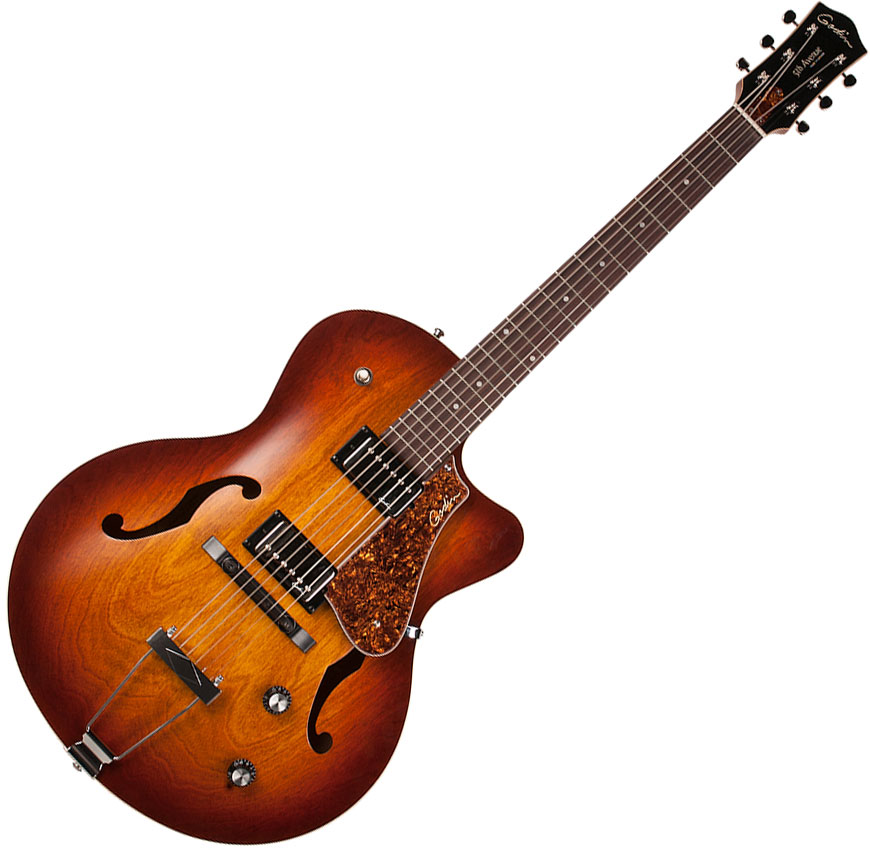Five Tips On Learning Jazz Guitar

Been on the jazz guitar journey for awhile now. Wanted to pass along a few thoughts and tips.
1. Practice Scales Using Intervals And Patterns
Everyone also wants you to practice scales. While running the scales linearly is important for establishing muscle memory, practicing them using intervals and patterns turns out to be far more useful for improvising. Playing through scales with intervals (3rds, 4ths, 5ths, 6ths) turns out to make interesting licks that are easily accessible and sound great. Also playing the scales as triads leads to great sounds licks. Another idea is to add an approach note to each triad. Or play the full seventh chord as an arpeggio in the scale. This tip applies to diatonic scales as well as other scales (melodic minor, diminished, whole tone, pentatonic).
2. Learn Chord Sequences
Learning chords is important, but learning them in isolation from one another isn’t nearly as productive as learning a cadence of chords that fits together. Having an arsenal of “moves” that connect chords together makes for better sounding comping. A classic example is major and minor ii-V-I. It also applies to other common chord sequences: I-IV, i-iv, I-iv-ii-V, III-VI-II-V, etc. Another example is during a vamp. Practice moving between the same chord by going to different inversions and connecting them with transition chords. Ultimately, this will yield way better results than learning cool sounding chords in isolation.
3. Force Yourself To Bring Technical Concepts To Improvisation
While technical work will show up in your playing through osmosis, it is more effective to force yourself apply the technical work. This is true for anything you are working on. If you are practicing scales or chord sequences as discussed above, they will eventually make their way into your solos, but it may take awhile. Forcing yourself to take a solo in which you only use a given pattern or sequence will speed the time up it takes to get those sounds into your improvisation. This is especially true for substitutions. Let’s say you are working on melodic minor scale substitutions to get an altered dominant sound over dominant (V) chords. If you practice taking some solos in which you create constraints during your solo such that you have to play a given substitution on every chord, no matter how hard it is or bad it sounds, you’ll find that it enters the muscle memory faster.
And it is totally okay to turn the bpm down to something absurd in order to achieve this. Slow is good.
4. The Guitar Likes Pentatonic Scales
Pentatonic scales derived from the cycle of fifths are the bread and butter of guitar soloing for a reason: they lay out so nicely. Not all instruments have this luxury. And once you have them under your fingers, there are so many applications of them to different contexts, whether it is through substitutions or simply using them over the root chord. There’s nothing “wrong” with embracing pentatonic scales on the guitar. Each instrument should be used for what it does well, as opposed to trying to make the instrument do things it doesn’t excel at.
5. Comp For Yourself
It is easy to get into the trap of either 1) soloing 2) comping, and not bringing them together. The guitar is great because you can accompany yourself. How cool is that? And by both soling and comping at the same time, you’ll improve both skills, ultimately creating your own chord melodies and arrangements that can stand on their own, with no other bandmates. Sometimes it is described as chord soloing, as opposed to writing a chord melody. A chord melody means composing voicings for a melody. A chord solo is more free and means soloing over changes by punctuating the solo with chords.
